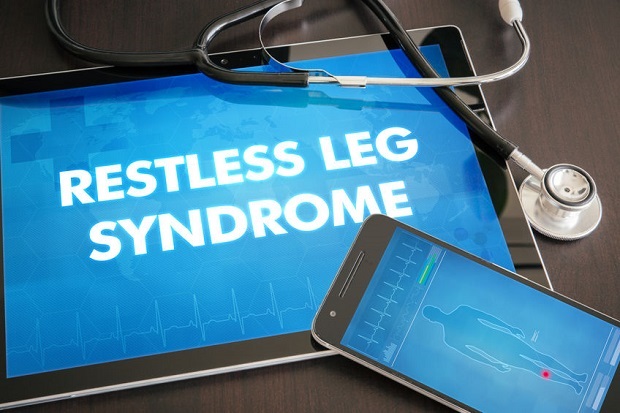
Are Kidney Stones Hereditary?
According to the National Library of Medicine, though it is unclear if an inheritance pattern exists for kidney stones, the overall risk of developing them is more significant for those with a close relative with the condition, such as a parent or sibling, when compared to the general public. [1]
Though the inheritance pattern for many cases of kidney stones is unclear, they are hereditary when certain genetic conditions are considered.
Genetic Conditions That Contribute to Kidney Stones
- Adenine phosphoribosyltransferase (APRT) deficiency
- Cystinuria
- Dent disease
- Familial hypomagnesemia with hypercalciuria and nephrocalcinosis
- Primary hyperoxaluria
Hereditary Causes of Kidney Stones
Kidney stones are hereditary when certain genetic conditions are considered. According to the academic paper “Hereditary Causes of Kidney Stones and Chronic Kidney Disease,” published in the journal Pediatric Nephrology, there are several inherited metabolic disorders that cause kidney stones. The authors cite these as “adenine phosphoribosyltransferase (APRT) deficiency, cystinuria, Dent disease, familial hypomagnesemia with hypercalciuria and nephrocalcinosis (FHHNC), and primary hyperoxaluria (PH).” [2]
The following is a brief overview of these conditions from the US National Library of Medicine’s Medline Plus. Below are links to a more in-depth description of each.
Adenine phosphoribosyltransferase (APRT) deficiency is an inherited condition caused by a mutated gene. It affects the kidneys and urinary tract and most often results in recurrent kidney stones. It affects 1 in 27,000 people in Japan and 1 in 50,000-100,000 people in Europe. The prevalence in other populations is not known. [3]
Cystinuria is an inherited condition characterized by a buildup of the amino acid cystine that accumulates in the urine. This excess cystine forms crystals that, when large enough, become stones. The condition affects 1 in 10,000 people. [4]
Dent disease is a chronic kidney disorder caused by damage to the proximal tubules. The condition occurs almost exclusively in males. It causes excess calcium in the urine, calcium deposits in the kidneys, and kidney stones. The condition is rare. [5]
Familial hypomagnesemia with hypercalciuria and nephrocalcinosis: Hypomagnesemia with secondary hypocalcemia is an inherited condition caused by the body’s inability to absorb and retain magnesium that is taken in through the diet. [6] The condition can result in nephrocalcinosis, a disorder in which too much calcium is deposited in the kidneys. [7]
Primary hyperoxaluria is characterized by recurrent kidney and bladder stones due to the overproduction of oxalate. The condition affects 1 in 58,000 people. [8]
Most Cases of Kidney Stones Are Not Hereditary
The National Kidney Foundation reports that about 25% of kidney stones occur in people with a family history of the condition. This means that most cases are caused by other factors, such as lifestyle habits that include drinking too little water, intake of too much salt or sugar, and too little or too much exercise. Certain diseases may also increase kidney stone risk, including chronic diarrhea, diabetes, high blood pressure, kidney cysts, obesity, and osteoporosis. [9]
Resources
- [1] National Library of Medicine – MedlinePlus – “Genetic Conditions>Kidney Stones.“
- [2] Edvardsson VO, Goldfarb DS, Lieske JC, Beara-Lasic L, Anglani F, Milliner DS, Palsson R. Hereditary causes of kidney stones and chronic kidney disease. Pediatr Nephrol. 2013 Oct;28(10):1923-42. doi: 10.1007/s00467-012-2329-z. Epub 2013 Jan 20. PMID: 23334384; PMCID: PMC4138059.
- [3] National Library of Medicine – MedlinePlus – “Genetic Conditions> Adenine phosphoribosyltransferase deficiency.”
- [4] National Library of Medicine – MedlinePlus – “Genetic Conditions > Cystinuria.“
- [5] National Library of Medicine – MedlinePlus – “Genetic Conditions > Dent Disease.“
- [6] National Library of Medicine – MedlinePlus – “Genetic Conditions > Hypomagnesemia with Secondary Hypocalcemia.“
- [7] National Library of Medicine – MedlinePlus – “Medical Encyclopedia > Nephrocalcinosis.“
- [8] National Library of Medicine – MedlinePlus – “Genetic Conditions > Primary Hyperoxaluria.“
- [9] National Kidney Foundation – “NFK Answers Top 10 Questions About Kidney Stones.“
DISCLAIMER: THIS WEBSITE DOES NOT PROVIDE MEDICAL ADVICE
The information on this website, including but not limited to text, graphics, images, and other material, is for informational purposes only. No material on this site is intended to be a substitute for professional medical advice, diagnosis, or treatment. Always seek the advice of your physician or other qualified healthcare providers with any questions you may have regarding a medical condition or treatment before undertaking a new healthcare regimen, and never disregard professional medical advice or delay in seeking it because of something you have read on this or any other website.





